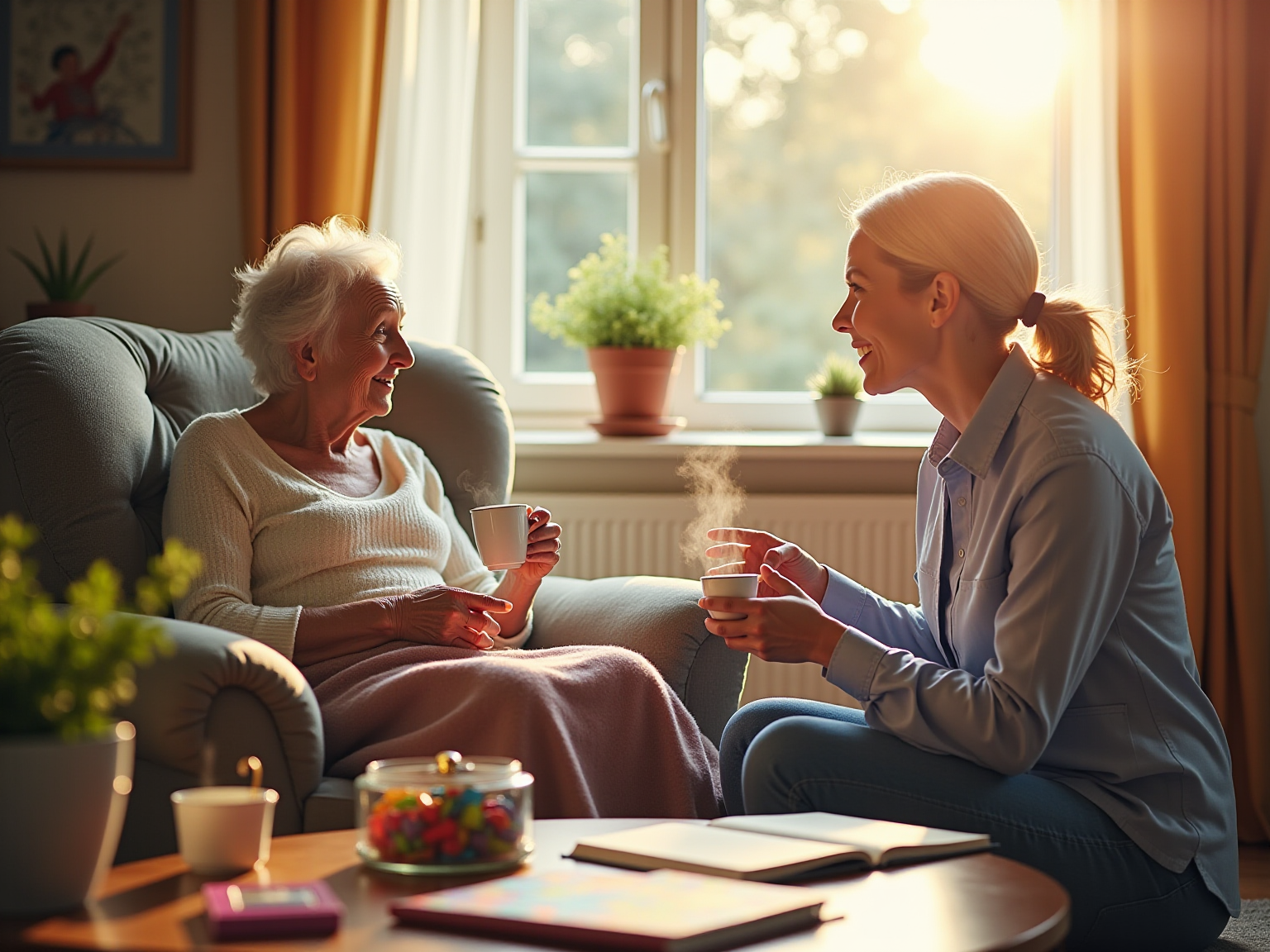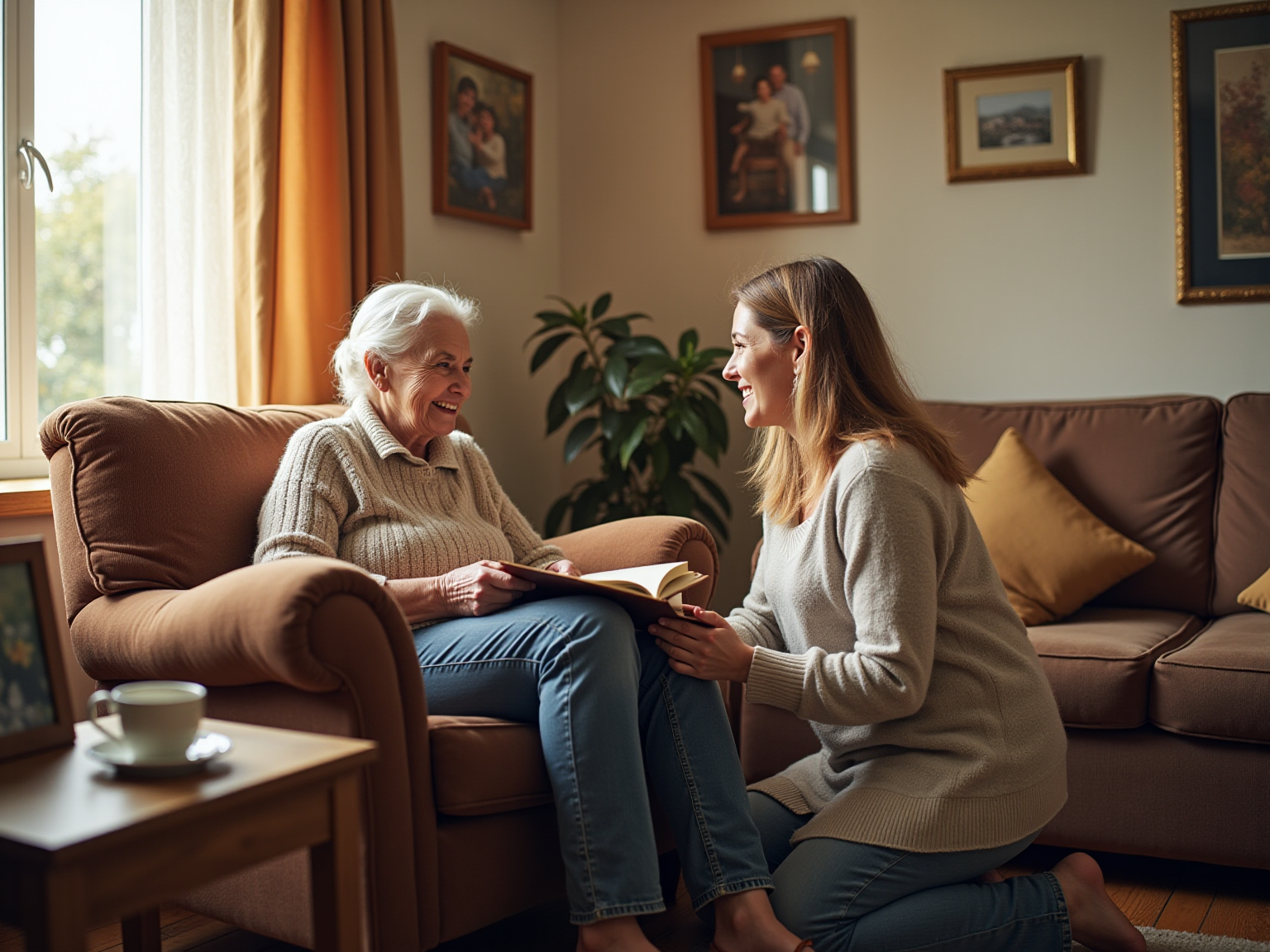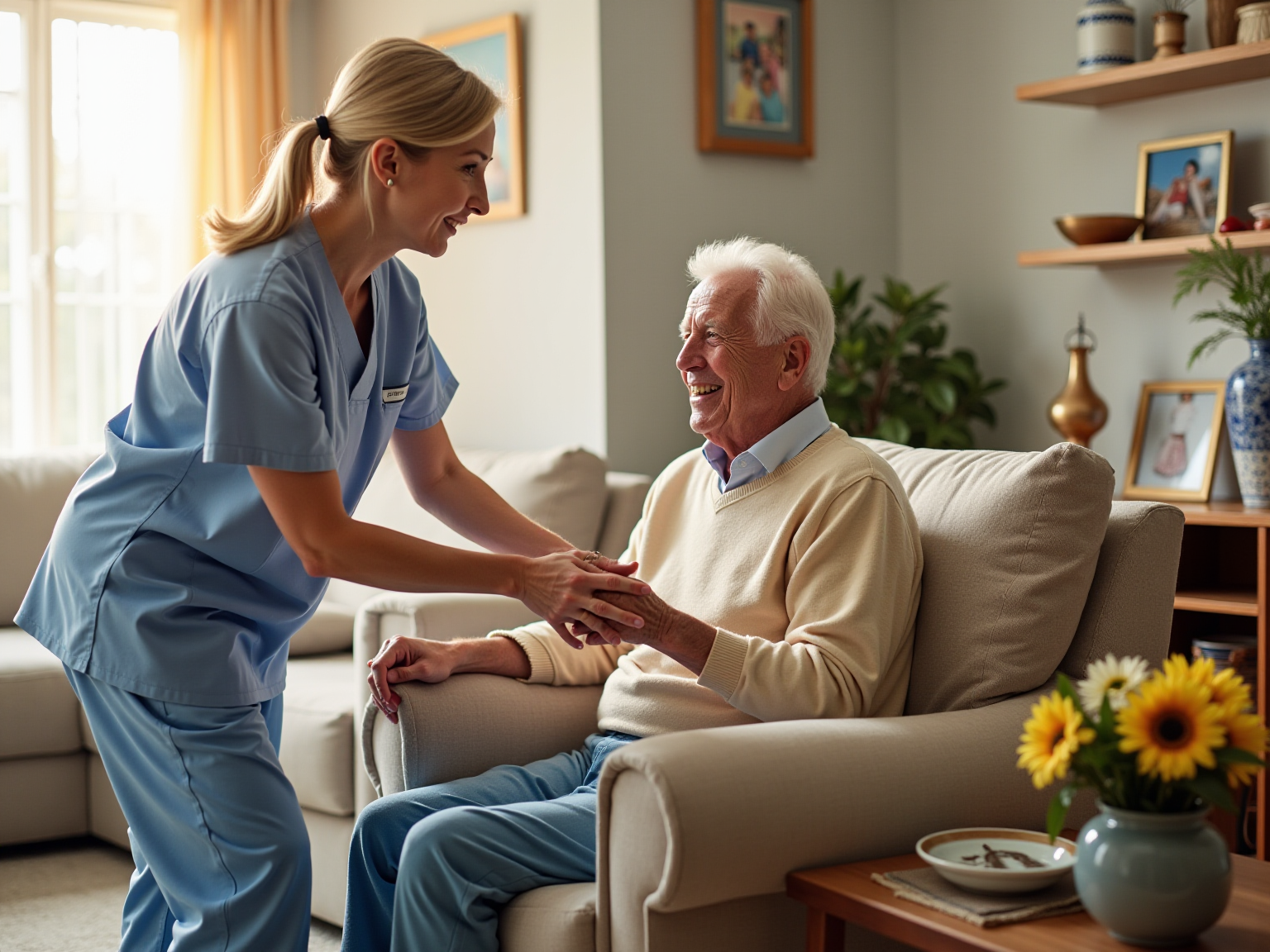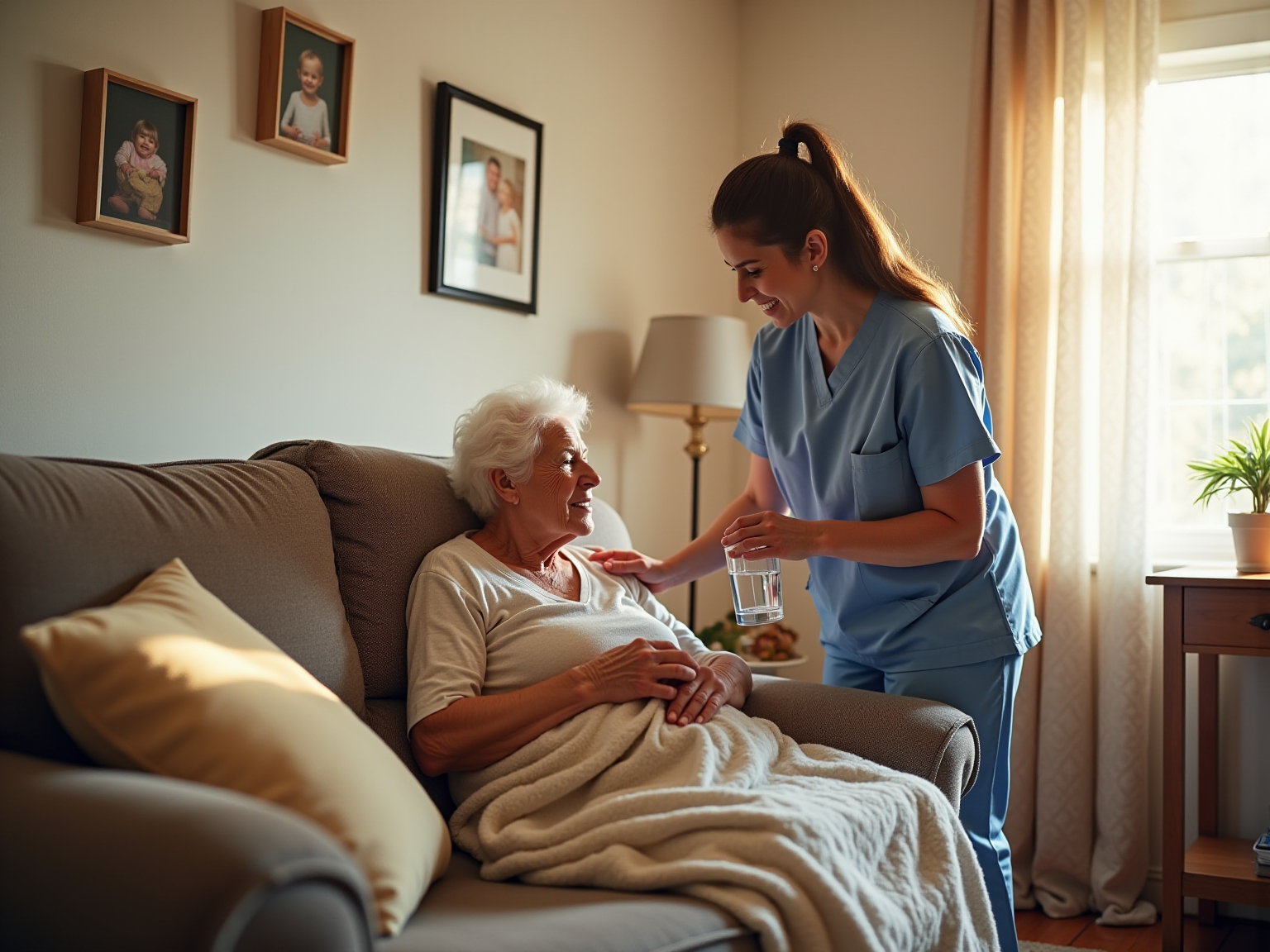Overview
The article “10 Engaging Things to Do for the Elderly to Enhance Well-Being” highlights the significance of activities that can uplift the quality of life for older adults. It recognizes the emotional and physical health needs of seniors, emphasizing that engaging in activities like:
- Movie nights
- Cooking
- Exercise classes
- Educational talks
can foster social connections and mental stimulation. By addressing these needs, we can enhance their overall well-being.
In addition, these activities not only provide enjoyment but also create opportunities for meaningful interactions. As a result, older adults can feel more connected and supported in their daily lives. We understand that every moment counts, and by encouraging participation in these enriching activities, we can make a positive impact on their lives.
Furthermore, the sense of community and belonging that comes from such engagements is invaluable. We’re here for you, and your comfort is our priority. By fostering these connections, we can help ensure that our elderly loved ones lead fulfilling and joyful lives.
Introduction
In a world where the aging population is rapidly increasing, the need for personalized care and engaging activities for seniors has never been more critical. Families are deeply concerned about enhancing the quality of life for their elderly loved ones, making it essential to explore a variety of supportive and enriching activities. From tailored in-home care services that prioritize individual needs to creative hobbies that stimulate the mind, the options are vast and inviting.
This article delves into innovative strategies that not only promote physical and mental well-being but also foster meaningful connections and cherished memories. Imagine the joy of engaging in activities that resonate with personal interests and experiences. By embracing these practices, caregivers and families can create a nurturing environment that celebrates the lives and stories of seniors, ensuring they thrive in their golden years. Together, we can make a difference in their lives, fostering a sense of belonging and joy.
Best Care Nurses Registry: Personalized In-Home Care for Enhanced Well-Being
Since 1980, Best Care Nurses Registry has been a trusted provider of in-home assistance, specializing in personalized services that cater to the unique needs of each client. Our dedicated team of thoroughly screened providers, including registered nurses and licensed practical nurses, ensures that seniors receive compassionate and professional assistance tailored to their specific situations. This personalized approach not only enhances the quality of service but also promotes independence and dignity among elderly clients, which is essential for their overall well-being, including various things to do for the elderly. Home assistance offers a more affordable and convenient alternative to traditional hospital or nursing facility support.
Current trends reveal a growing demand for personalized home health assistance, with projections indicating a need for 924,000 personal support aides and home health aides by 2031, according to industry reports. This underscores the importance of personalized support in offering things to do for the elderly, which can improve their quality of life. Research from Market.us shows that 89% of patients express satisfaction with home healthcare services, highlighting the positive impact of personalized care on elderly well-being.
The average resident of an assisted living facility is an 85-year-old woman, emphasizing the need for specialized assistance that addresses this demographic. At Best Care, we are committed to pairing clients with suitable caregivers, enriching their experience and ensuring that each individual receives support aligned with their personal preferences and needs. This customized approach not only addresses safety and convenience but also provides emotional support, easing the stress often felt by family caregivers.
By focusing on personalized assistance and highlighting important things to do for the elderly, Best Care Nurses Registry meets not only the immediate medical needs of elderly individuals but also plays a vital role in their emotional and psychological well-being, making it an essential part of their overall quality of life. With flexible service options, including 24-hour care, Best Care stands out as a leading family-owned home health care provider in South Florida, dedicated to ensuring the safety and happiness of your loved ones at home.
We’re here for you—call (888) 203-2529 to learn more about our services or to schedule a consultation.
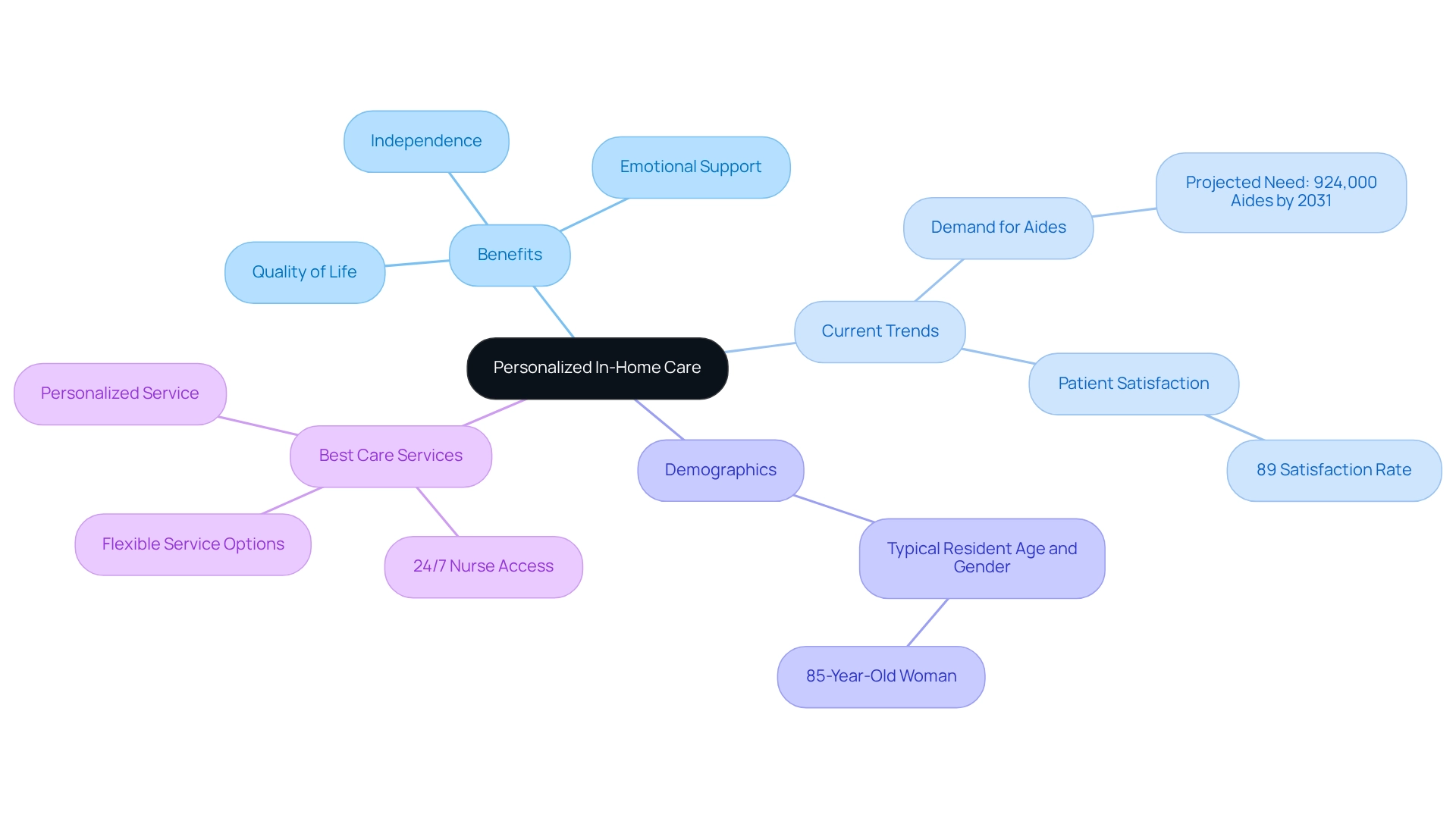
Plan a Movie Night: Foster Connection Through Shared Entertainment
Arranging a movie evening can be a delightful way to bring together family and friends, as it provides enjoyable things to do for the elderly. By selecting films that resonate with their interests or nostalgic favorites, you can spark meaningful conversations and evoke cherished memories. Creating a cozy atmosphere with comfortable seating and snacks enhances the experience, and engaging in themed discussions about the film afterward can deepen connections. This shared experience not only entertains but also strengthens bonds and fosters a sense of community among participants.
Research shows that watching movies in groups significantly enhances social interactions, which is vital for the mental well-being of elderly individuals. For instance, collective engagements can help reduce feelings of isolation and loneliness, common challenges faced by older adults. Participating in such activities, like movie nights, is among the valuable things to do for the elderly, serving as a proactive care strategy for families overseeing their loved ones’ care, aiding in alleviating stress and promoting a safer living environment.
Furthermore, the growing appeal of shared entertainment options is evident, as highlighted by Andrew Stuart’s observation of Netflix’s subscriber increase, reflecting a broader trend towards communal viewing experiences. By prioritizing these shared entertainment moments, families can positively impact their elderly loved ones’ mental health and overall quality of life. To enhance this experience, families are encouraged to schedule regular movie nights, creating a cherished tradition that fosters connection and joy.
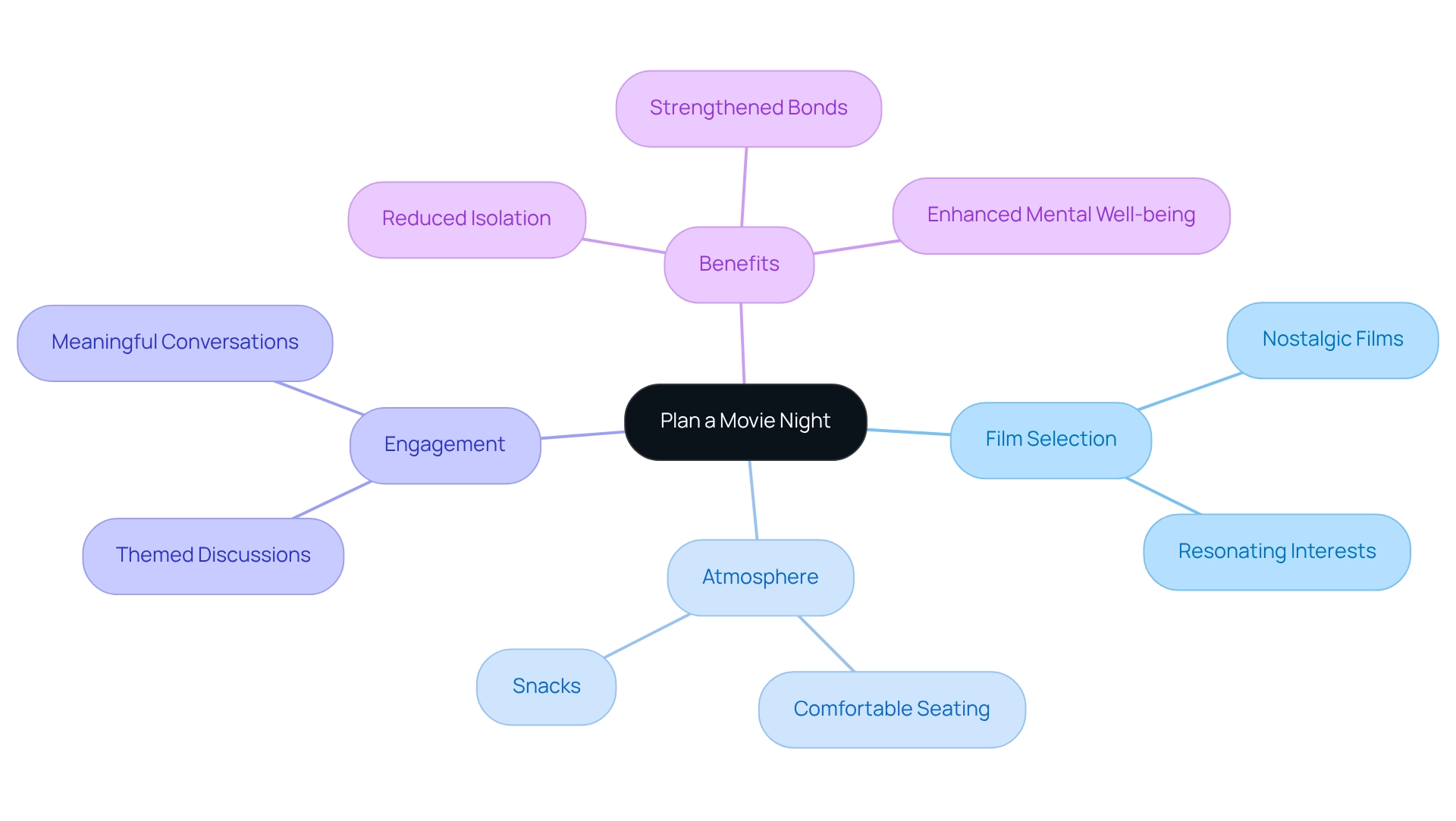
Learn New Recipes Together: Combine Nutrition and Quality Time
Cooking is not just a task; it’s one of the enjoyable things to do for the elderly and their caregivers, fostering both nutrition and connection. Consider opting for simple, nutritious recipes like vegetable soups or baked dishes that are easy to prepare. Involving older adults in the cooking process is one of the meaningful things to do for the elderly, as it allows them to showcase their culinary talents and preferences, transforming mealtime into a cherished experience filled with storytelling and shared memories.
Studies reveal that cooking activities can significantly enhance social interactions among the elderly, nurturing a sense of community and belonging. In fact, research indicates that older adults who engage in cooking are more likely to maintain improved nutritional practices, which are essential for their overall wellness. The HEI-2015 score for individuals aged 81 and above is 62.7, highlighting the need for better nutritional practices within this demographic.
Furthermore, older individuals facing extremely low food security often experience a significant threat of hunger, underscoring the importance of cooking and nutrition as vital things to do for the elderly. By incorporating cooking into their routine, families can create lasting memories while exploring things to do for the elderly and ensuring their loved ones receive the nutrition they need to thrive.
Additionally, a case study from the Greater Cleveland Food Bank illustrates the vital role of food aid in addressing food insecurity, further demonstrating the importance of culinary endeavors as important things to do for the elderly in combating hunger among older adults. By cooking together, families not only nourish the body but also strengthen emotional bonds, making it an essential component of caregiving.
Remember, we’re here for you, and your comfort is our priority. Let’s embrace the joy of cooking and share these meaningful moments together.
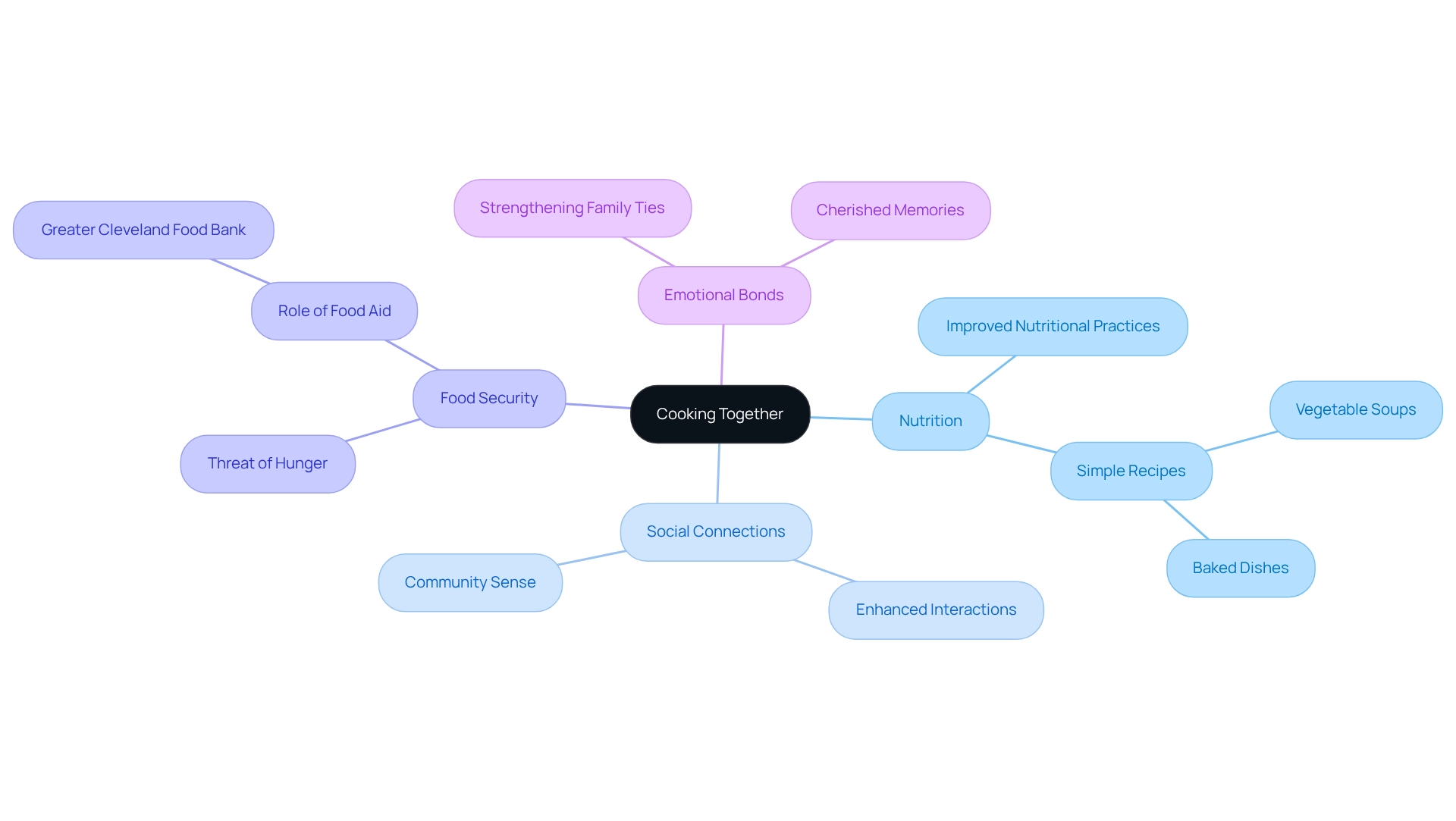
Join Exercise Classes: Enhance Physical Health and Mobility
Engaging in exercise sessions designed for older adults, such as chair yoga, tai chi, or water aerobics, is among the valuable things to do for the elderly that can significantly enhance their physical health and mobility. These classes are among the important things to do for the elderly to improve strength, flexibility, and balance—essential elements in preventing falls and maintaining independence. Research shows that regularly joining community-based fitness programs is among the important things to do for the elderly to achieve better physical outcomes. For example, the SAIL Program offers a fitness class three times a week, encouraging consistent activity among participants.
Encouraging older adults to engage in local community classes or online sessions is among the important things to do for the elderly, as it supports physical well-being and fosters a sense of camaraderie and motivation. Have you ever noticed how group exercise can enhance social interaction? This connection is vital for emotional well-being. Physical therapists emphasize that maintaining mobility is crucial for older adults, as it directly impacts their quality of life. As Wing S. Kwok notes, “The main strength of this study is the large population-based sample of Australian women, which allowed for more precise estimates of the association between LPA and noninjurious and injurious falls.” By taking part in these classes, older adults can engage in various things to do for the elderly, including improved mobility, a reduced risk of falls, and enhanced overall health, making exercise a vital part of their daily routine.
Moreover, recognizing the complexities of assessing physical exertion and its influence on fall risks is essential. The case study titled ‘Challenges in Measuring Physical Exertion and Falls‘ highlights the importance of objective measures in understanding these relationships. We’re here for you, ready to support you on this journey towards a healthier, more active life.
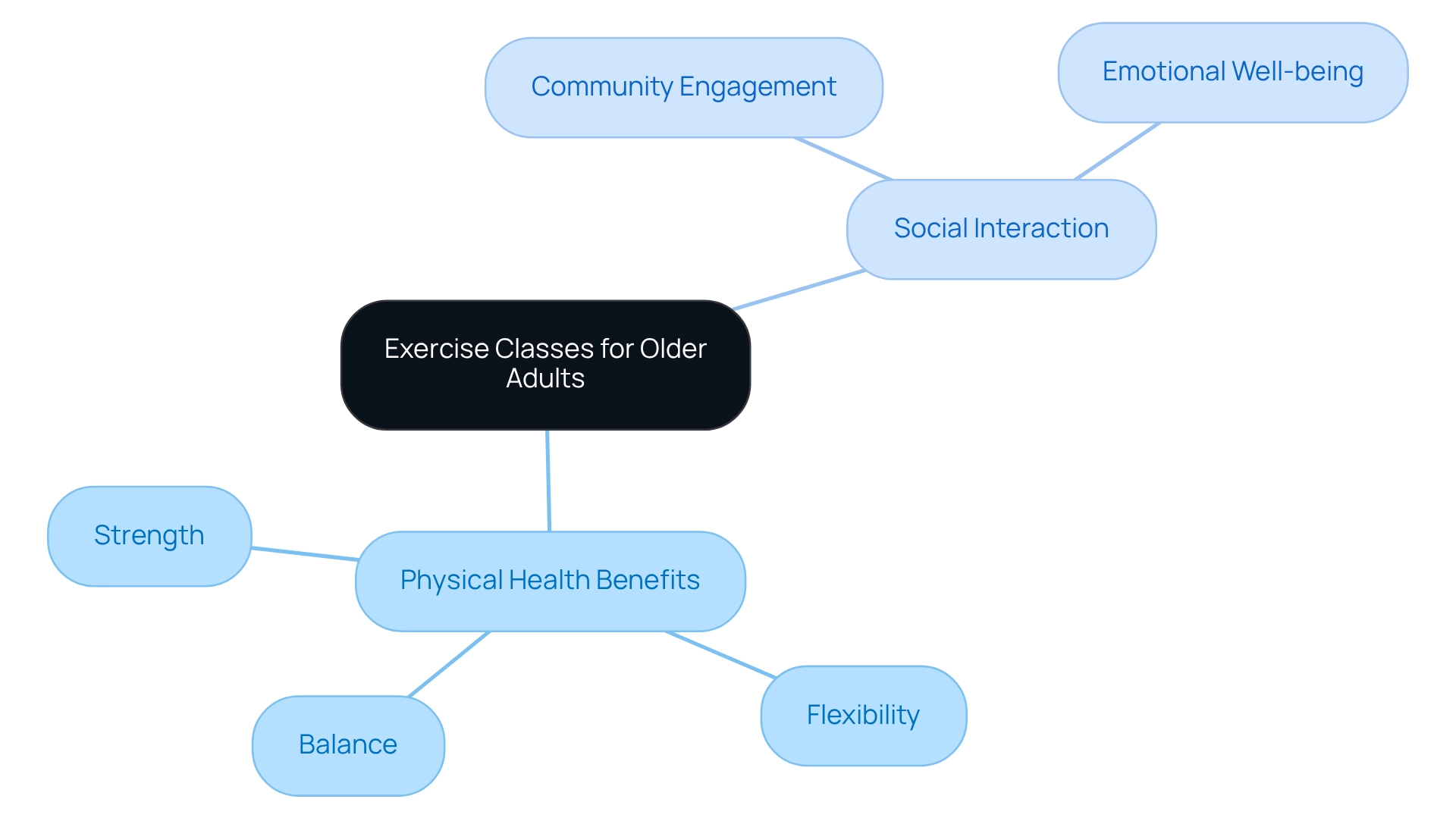
Explore Creative Hobbies: Stimulate Mind and Foster Accomplishment
Engaging in creative hobbies such as painting, knitting, or gardening is one of the important things to do for the elderly that can profoundly enhance their mental well-being. Have you ever noticed how a simple act of creation can lift your spirits? Studies show a two-way connection between hobby involvement and mental well-being. As mental well-being enhances, participation in these pursuits rises, and the opposite is also true. These creative activities not only stimulate the mind but also instill a sense of accomplishment and purpose.
Arranging group sessions or workshops is among the things to do for the elderly that allows older adults to acquire new skills together, promoting social bonds that are essential for emotional well-being. Such interactions are among the important things to do for the elderly as they can significantly improve life satisfaction and happiness while reducing depressive symptoms. Ultimately, this enhances their overall quality of life. As Paracelsus wisely noted, “The art of healing comes from nature, not from the physician,” highlighting the natural benefits of engaging in creative activities.
In addition, recent research has demonstrated that involvement in stress management programs can result in advantageous effects on the emotional health of older adults. This reinforces the positive influence of creative hobbies on mental well-being. Remember, we’re here for you in your journey toward a more fulfilling and joyful life.
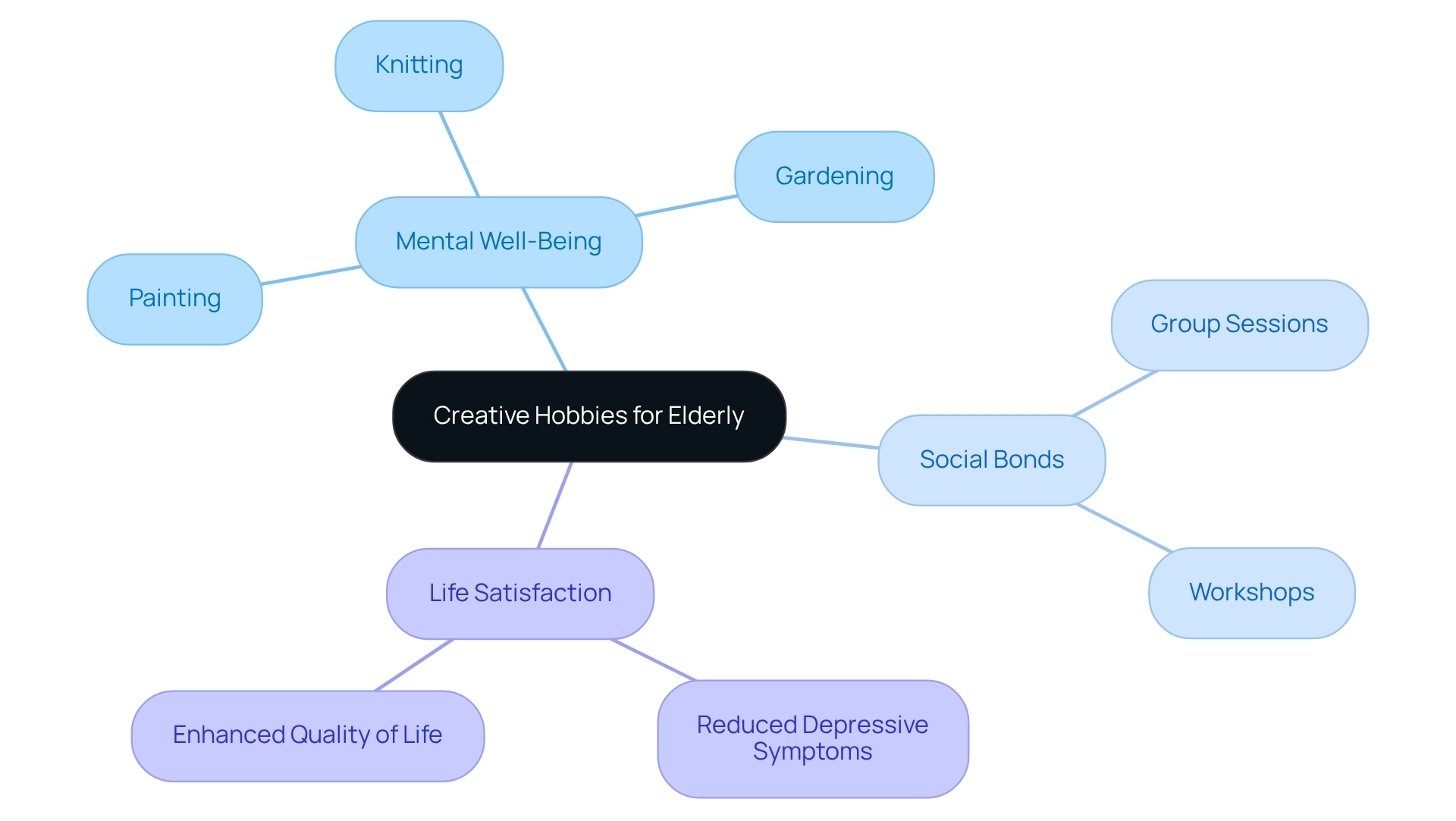
Reminisce and Share Stories: Strengthen Family Bonds
Encouraging older adults to share their life stories and memories is a powerful way to strengthen family bonds. By arranging family gatherings focused on storytelling, we create opportunities for older adults to reflect on their experiences. This not only safeguards family history but also nurtures emotional connections and understanding among relatives. As Robert McKee wisely noted, “Stories are how we remember; we tend to forget lists and bullet points.”
Research shows that storytelling enhances life satisfaction, as indicated by the Life Satisfaction Scale for Elderly, and plays a crucial role in emotional health for seniors. A study on reminiscence therapy highlights its effectiveness in improving the quality of life for older adults, particularly those without cognitive impairments. Furthermore, ongoing research, such as the case study titled “Future Directions for Reminiscence Therapy Research,” underscores the need for developing reminiscence therapy programs tailored to community settings.
By participating in these storytelling experiences, families can foster a supportive atmosphere that nurtures relationships and deepens emotional connections. Ultimately, this approach enhances the overall family dynamic, ensuring that every member feels valued and heard. Remember, we’re here for you, and your comfort is our priority.
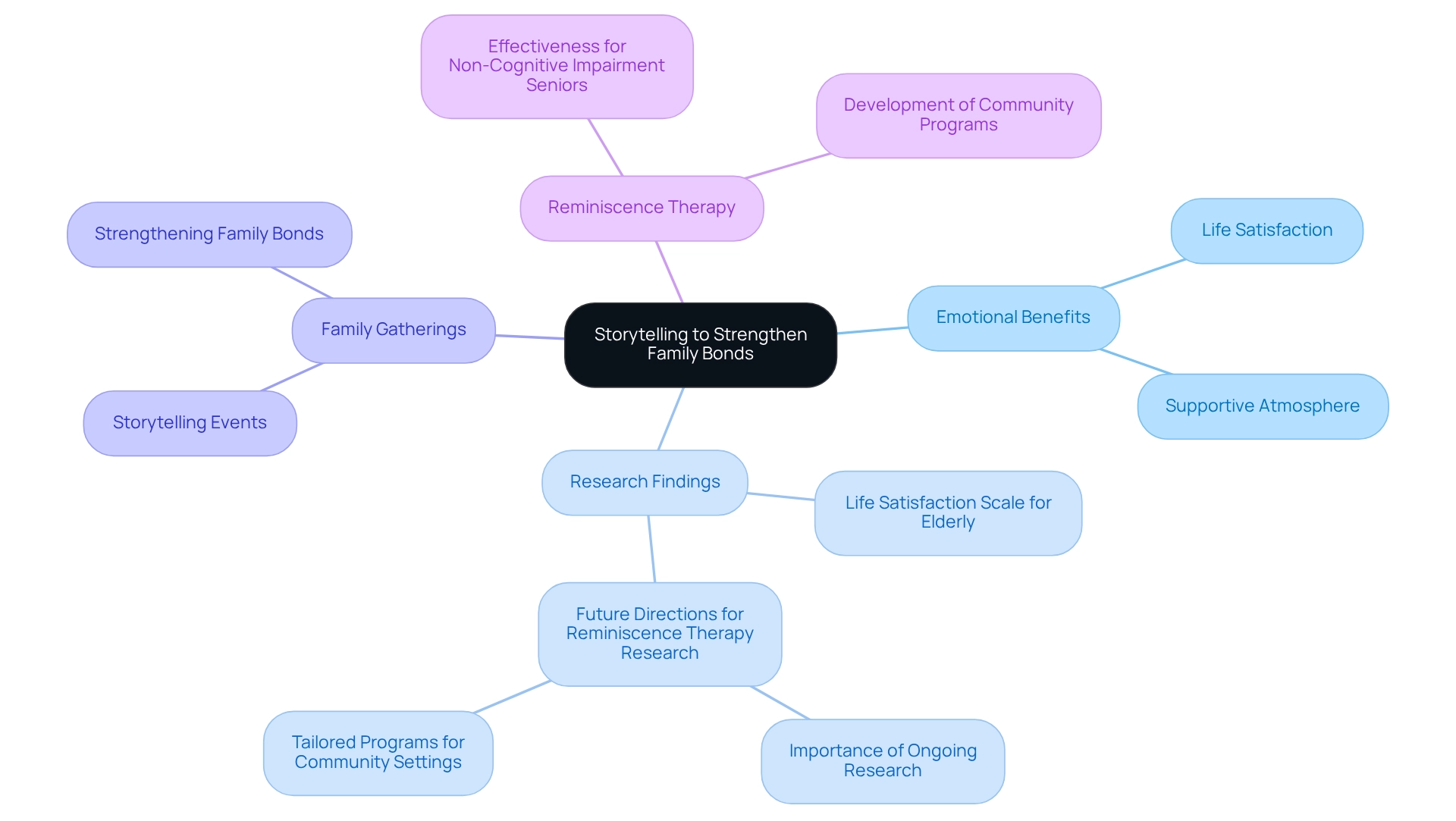
Organize Group Reading Sessions: Boost Cognitive Function and Social Interaction
Organizing group reading sessions is among the best things to do for the elderly to engage both cognitively and socially. By selecting captivating books or articles, we can spark stimulating discussions, allowing participants to share their thoughts and insights. Research shows that cognitively stimulating tasks, such as reading, are crucial for preserving cognitive function in older adults. In fact, studies indicate that engaging in these activities can significantly delay the onset of cognitive decline, with an adjusted odds ratio (AOR) at 14 years ranging from 0.34 to 0.86. This highlights the long-term benefits of reading.
Pairing reading with light refreshments can further enrich the experience, creating a warm and inviting atmosphere that encourages conversation and connection among participants. Not only does this boost cognitive function, but it also strengthens social bonds, making group reading one of the essential things to do for the elderly to enhance their overall well-being. As Therese Treves notes, each year of education has been linked to an increased reported age of onset for cognitive decline, underscoring the importance of engaging in intellectually stimulating activities like reading.
Moreover, research such as the Taiwan Longitudinal Study on Aging provides valuable insights into how cognitive well-being is assessed in older individuals, emphasizing the significance of pursuits that foster cognitive involvement. We invite you to consider the benefits of group reading sessions, as they are important things to do for the elderly, promoting both cognitive health and social connections. Remember, your comfort and well-being are our priority, and we’re here to support you in every step of this journey.
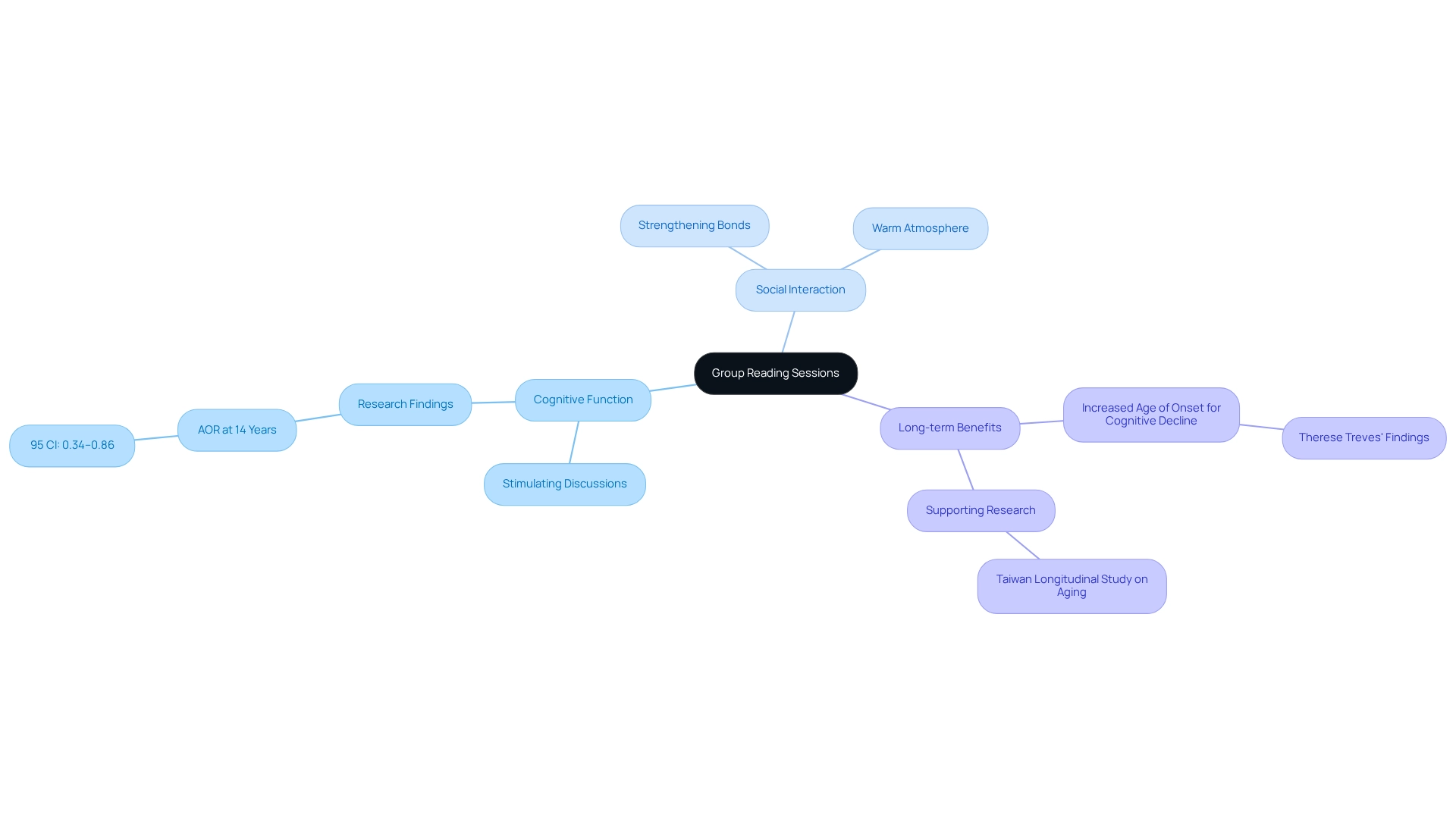
Take Nature Trips: Enjoy Fresh Air and Scenic Views
Organizing nature excursions is one of the great things to do for the elderly, offering older adults a revitalizing opportunity to appreciate the outdoors while engaging in gentle exercise. Activities such as strolling through local parks, visiting botanical gardens, or taking scenic drives not only provide fresh air but also promote relaxation. Group outings are particularly beneficial, as they foster social connections and enhance the overall experience of enjoying nature’s beauty.
Research indicates that nature-based interventions significantly improve mental health outcomes. A meta-analysis shows large reductions in anxiety symptoms among participants. Spending time outside, particularly in natural light, has been associated with improved sleep quality by aiding in the regulation of circadian rhythms. This is illustrated in the case study titled ‘Improved Sleep Patterns from Outdoor Exposure,’ which discovered that greater time spent outdoors contributes to deeper, longer sleep.
Furthermore, outdoor activities profoundly impact mood and stress reduction for the elderly. Connecting with nature can uplift moods and reduce feelings of isolation, making it a vital aspect of well-being for older adults. As Frank Lloyd Wright famously said, “Study nature, love nature, stay close to nature. ‘It will never let you down,'” emphasizing that a bond with nature is essential for mental well-being.
Encouraging older adults to embrace these nature trips is among the most beneficial things to do for the elderly, as it supports their physical health and nurtures their emotional well-being. Families can explore local parks such as [insert specific local park names] or inquire about community outings to enhance their loved ones’ lives. This endeavor is not just worthwhile; it is a meaningful way to show care and support.
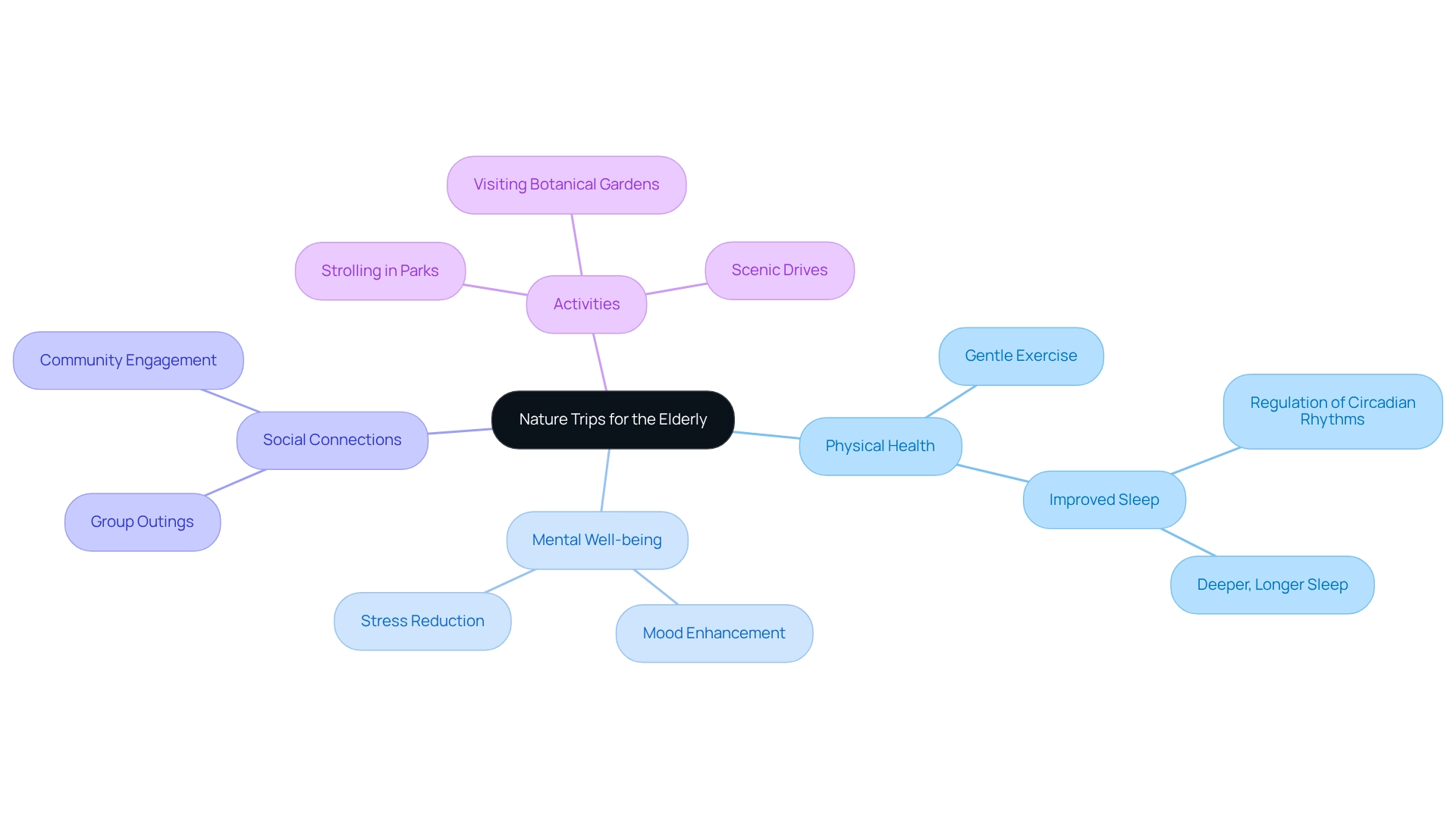
Practice Mindfulness: Reduce Stress Through Yoga and Meditation
Incorporating mindfulness practices such as yoga and meditation into the routines of seniors is among the most beneficial things to do for the elderly to significantly enhance their mental well-being. These activities promote relaxation, alleviate anxiety, and sharpen focus, addressing the emotional needs of our elderly community. Gentle yoga classes and tailored meditation sessions are great things to do for the elderly, equipping them with effective tools to manage stress and cultivate tranquility in their daily lives.
Research indicates that mindfulness practices lead to notable improvements in emotional health. Participants often report decreased mood-related distress and a reduction in depressive symptoms following structured interventions. For instance, a case study titled ‘Emotional Distress Measures in Mindfulness Interventions’ found that those in mindfulness groups experienced a significant decrease in mood-related distress after the intervention, alongside a marginally significant reduction in depression levels.
As Jon Kabat-Zinn, the founder of the Mindfulness-Based Stress Reduction program, states, ‘The awareness that arises through paying attention, on purpose, in the present moment, non-judgmentally’ is crucial for fostering emotional well-being. By prioritizing these practices, caregivers can incorporate things to do for the elderly that assist them in cultivating a more peaceful and balanced lifestyle. This commitment ultimately enhances their quality of life, showing that we are here for them, supporting their journey towards emotional health.
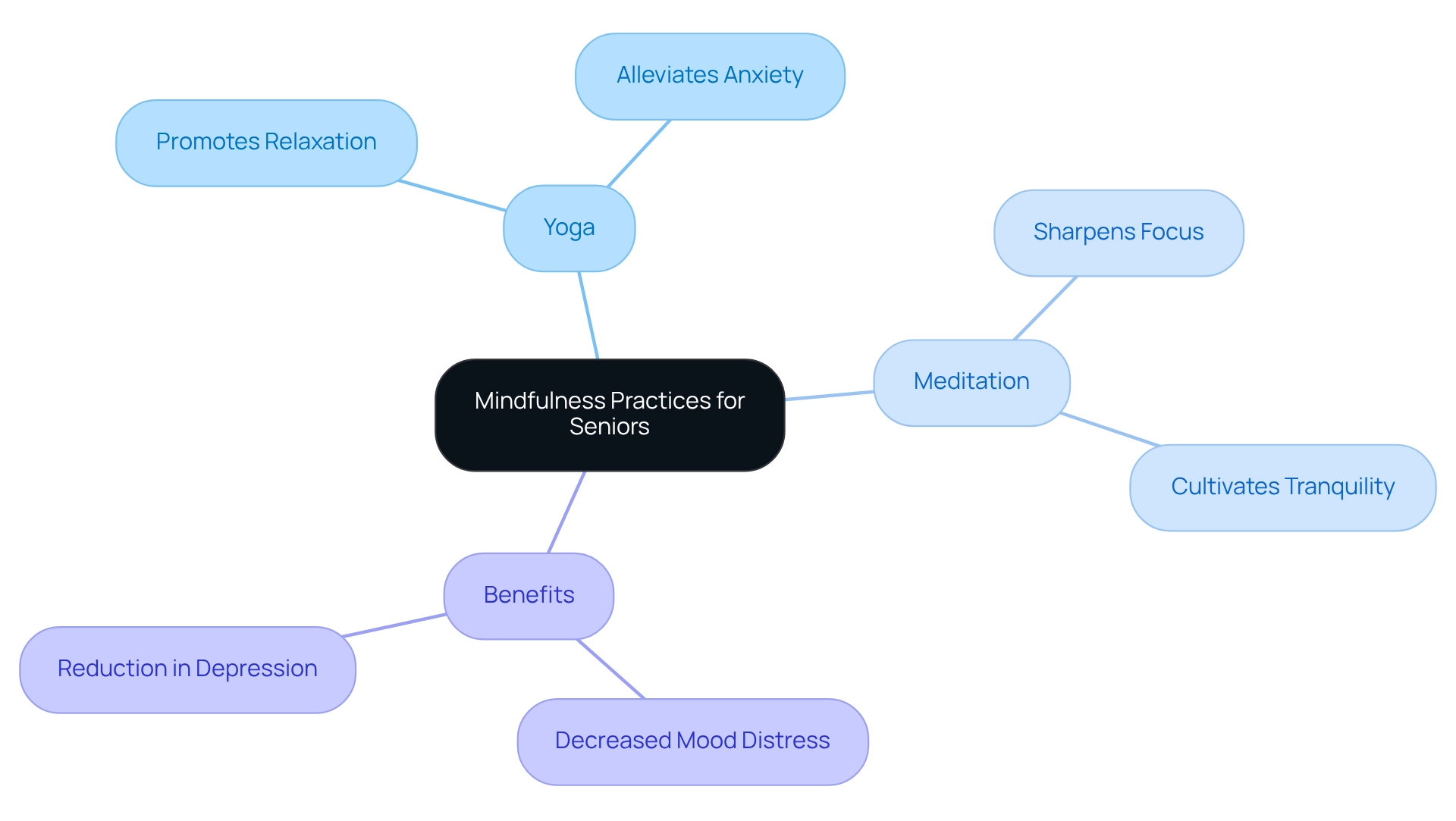
Attend Educational Talks: Empower Seniors Through Knowledge
Encouraging older adults to engage in educational talks and workshops is among the best things to do for the elderly to stimulate their minds and foster a sense of community. These events can cover a wide array of topics, including health, wellness, technology, and the arts, offering valuable insights while promoting social interaction. Engaging in various things to do for the elderly not only provides older adults with essential knowledge but also cultivates relationships with their peers, significantly enhancing their overall quality of life.
The importance of continuous education is one of the essential things to do for the elderly, as it empowers them and enhances their well-being. Did you know that nearly 43% of older adults are pursuing continuing education specifically in fields such as healthcare and the arts? This reflects a growing trend towards educational engagement. Furthermore, the COVID-19 pandemic has shifted preferences, with around 40% of older adults indicating that it impacted their educational choices. This highlights the necessity for adaptable educational opportunities that cater to their needs.
Workshops are significant things to do for the elderly as they have a profound impact on their empowerment. They provide a platform for older adults to gain new skills and knowledge, which can lead to enhanced cognitive function and emotional health. Incorporating interactive elements into these learning experiences has been shown to improve memory retention, making the educational process even more effective. As Dr. Yihui Zheng states, “Learning in later life and intergenerational learning happen in a broad range of contexts, providing benefits both for the learners themselves and the communities in which they live.” By fostering a culture of learning, we not only enrich the lives of seniors but also strengthen the communities in which they reside. Moreover, these educational opportunities can alleviate stress for families, allowing them to focus on their personal lives while ensuring their loved ones receive the best possible care.
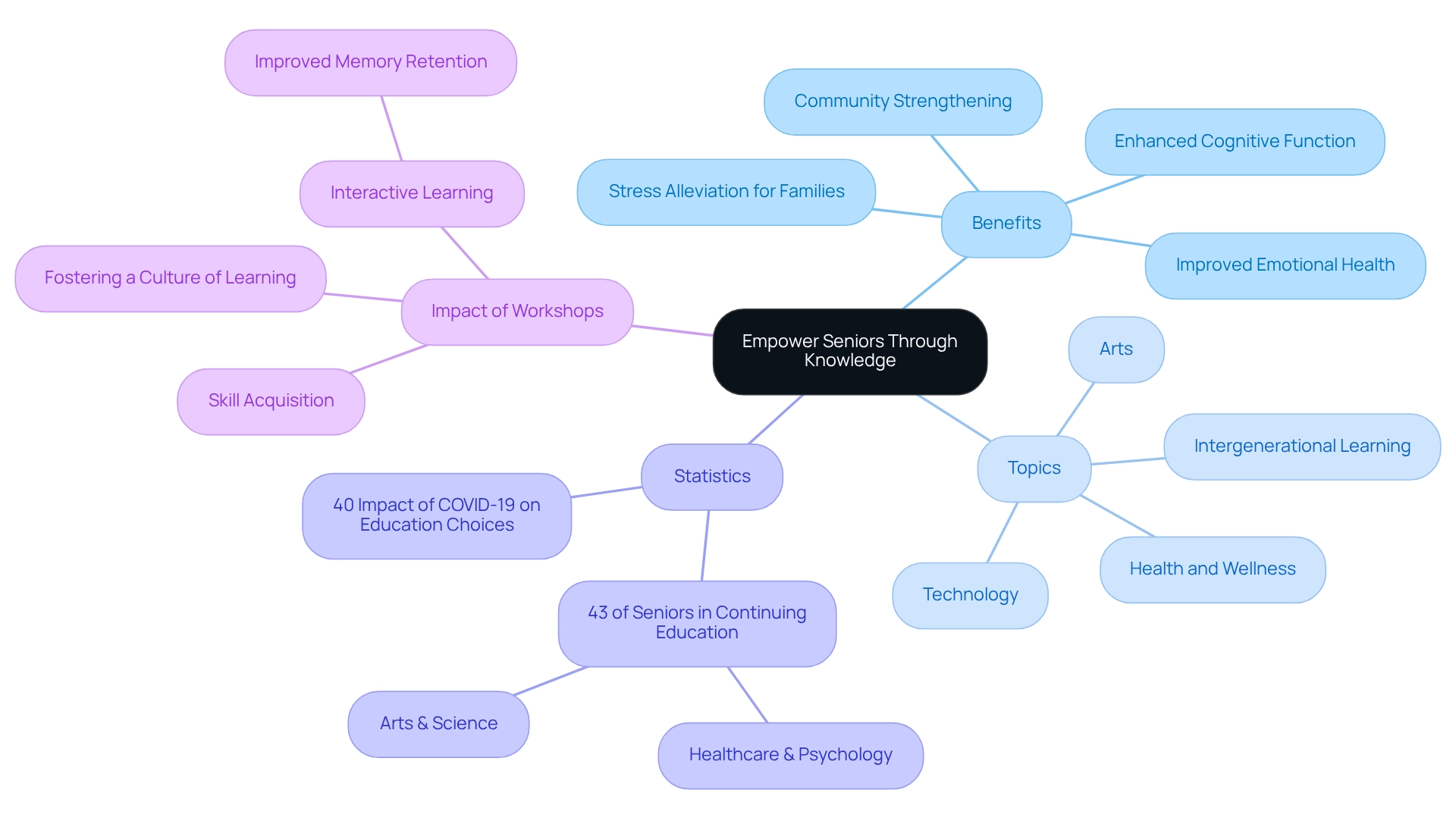
Conclusion
The article underscores the vital role of personalized care and engaging activities for seniors, highlighting how a nurturing environment can greatly enhance their quality of life. By exploring various strategies—such as in-home care services, movie nights, cooking together, and exercise classes—families can effectively foster the physical, emotional, and social well-being of their elderly loved ones.
Engaging in creative hobbies, reminiscing through storytelling, and participating in group reading sessions further enrich mental stimulation and social interaction, which are essential for combating feelings of isolation and loneliness. In addition, nature trips and mindfulness practices provide opportunities for relaxation and stress reduction, promoting overall emotional health.
Ultimately, these activities are not just about filling time; they are about enriching the lives of seniors, fostering meaningful connections, and creating cherished memories. By prioritizing personalized care and engaging experiences, families can profoundly impact the lives of their elderly loved ones, ensuring they thrive in their golden years. Through these shared moments of joy and connection, a sense of belonging and fulfillment can be cultivated, allowing seniors to live their lives to the fullest.
Frequently Asked Questions
What services does Best Care Nurses Registry provide?
Best Care Nurses Registry offers in-home assistance, specializing in personalized services tailored to the unique needs of each client, including care from registered nurses and licensed practical nurses.
How does Best Care Nurses Registry ensure quality care for seniors?
The registry employs a dedicated team of thoroughly screened providers who deliver compassionate and professional assistance, enhancing the quality of service and promoting independence and dignity among elderly clients.
What is the current demand for home health assistance?
Current trends indicate a growing demand for personalized home health assistance, with projections estimating a need for 924,000 personal support aides and home health aides by 2031.
How satisfied are patients with home healthcare services?
Research shows that 89% of patients express satisfaction with home healthcare services, highlighting the positive impact of personalized care on the well-being of elderly individuals.
What demographic does Best Care Nurses Registry primarily serve?
The average resident of an assisted living facility is an 85-year-old woman, indicating a need for specialized assistance that caters to this demographic.
What are the benefits of personalized assistance for elderly clients?
Personalized assistance addresses safety, convenience, and emotional support, easing the stress felt by family caregivers and enhancing the overall quality of life for elderly individuals.
What flexible service options does Best Care offer?
Best Care Nurses Registry provides flexible service options, including 24-hour care, to ensure the safety and happiness of clients at home.
How can families engage elderly loved ones in meaningful activities?
Families can arrange movie nights, cooking sessions, and other enjoyable activities that resonate with elderly individuals’ interests, fostering connections and enhancing their quality of life.
What are the benefits of cooking with elderly individuals?
Cooking together fosters nutrition and connection, enhances social interactions, and allows older adults to showcase their culinary talents, transforming mealtime into a cherished experience.
Why is it important to address food security among the elderly?
Older individuals facing low food security are at significant risk of hunger, making cooking and nutrition essential for their overall wellness and emotional bonding with family members.

